KATHMANDU: A fresh wave of political discussion has emerged in Nepal following the recent agreement between the Nepali Congress and the CPN-UML to address constitutional amendments.
This development has ignited interest and concern among ruling and opposition parties, stakeholders, and the general public about potential changes to the current constitution.
On July 1, 2024, the consensus government, led by Congress and UML, agreed to review the strengths, weaknesses, and complications that have arisen since the Constitution’s implementation.
They emphasized prioritizing necessary amendments and creating appropriate laws to ensure political stability.
In the program “Practice of the Coalition Government and Impact” jointly organized by Constitutional Watch Group and the Institute for Strategic and Socio-Economic Research (ISSR) at the Pavilion Hall in Kathmandu on Thursday, leaders discussed the role of political parties and the government in implementing the Constitution.
Nepali Congress leader Dr. Minendra Rizal, UML Deputy General Secretary Pradeep Gyawali, Maoist Center MP Devendra Paudel, Rastriya Swatantra Party (RSP) MP Santosh Pariyar, and Unified Samajwadi MP Sher Bahadur Kunwar shared their perspectives.
Additionally, Nepali Congress MPs Sita Gurung and Laxmi Pariyar, RSP MP Sobita Gautam, Nepali Congress leader Radheshyam Adhikari, President of the Consumer Rights Forum Jyoti Baniya, former administrator Khemraj Regmi, and former local people’s representative Banshalal Tamang contributed their views on the governance impact of the joint government.
The majority of speakers emphasized the need for constitutional amendments.
ISSR Chairman Naresh Shrestha commended the participation of the leaders at the program.
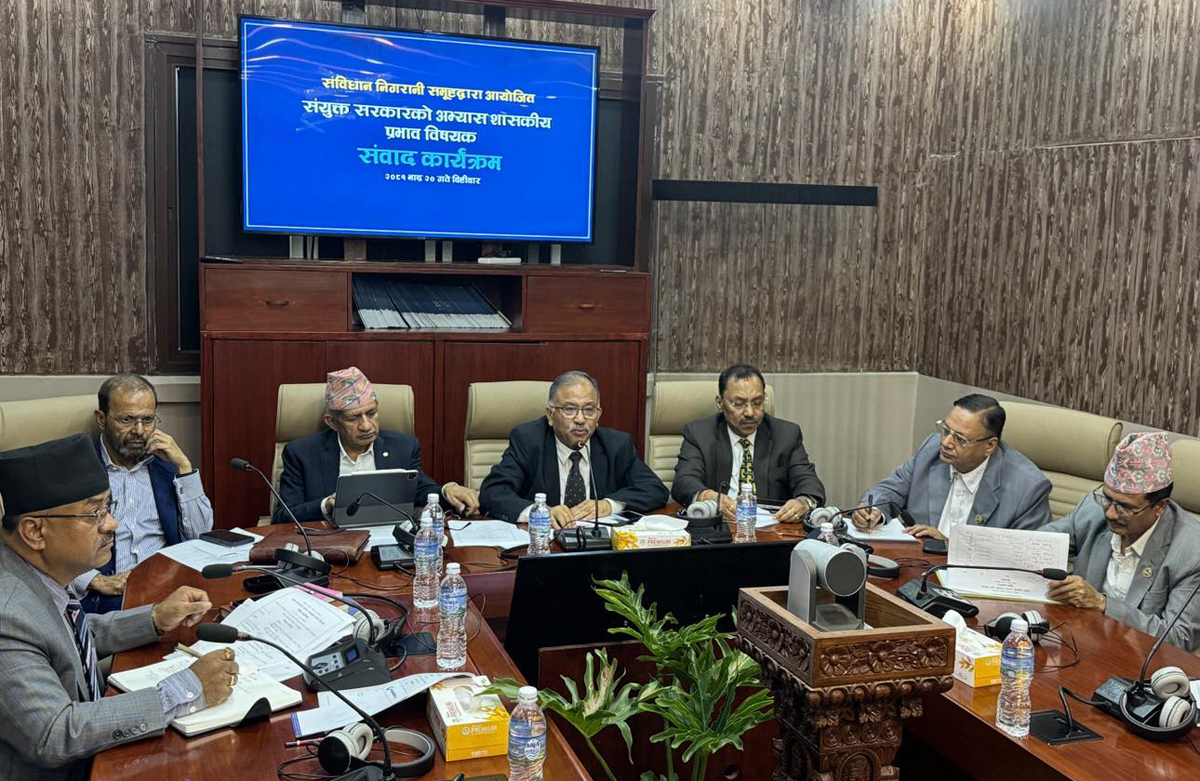
Minendra Rizal and Pradeep Gyawali weigh in on constitutional amendments
Nepali Congress leader Dr. Minendra Rizal emphasized the importance of proper discourse when discussing constitutional amendments.
He argued that the Constitution, crafted by the Constituent Assembly, cannot be altered on a whim by merely two leaders.
Dr. Rizal insisted that the Constitution, being a product of the Constituent Assembly, must remain within its established political framework.
He also highlighted the need for thoughtful consideration regarding the proportional representation list, questioning the rationale behind including certain individuals.
“Why should someone like me be included in the proportional list?” he asked.
“Parties should reflect on why individuals with significant property in Kathmandu should be included.”
He expressed concerns that increasing the electoral threshold might undermine small parties, stressing the importance of achieving a majority to ensure government stability.
“Raising the threshold could eliminate smaller parties, which could destabilize the government,” he said.
Meanhile, CPN-UML Deputy General Secretary Pradeep Gyawali argued against transitioning to a system with a directly elected Prime Minister and President in the current climate of rising populism.
“Nepal is not in a position to amend the Constitution to introduce a directly elected President and Prime Minister at this time. Such a shift is not feasible for our country right now,” Gyawali explained.
He noted that the current government, composed of Congress and UML, will address constitutional amendments with serious deliberation.
“The Constitution we established cannot be amended lightly. We will review the achievements and deficiencies over the past decade and aim to improve it,” Gyawali said.
He also reaffirmed that the Congress-UML alliance will adhere to the 7-point agreement to ensure stability and complete its term.
MP Sobita Gautam criticized the current state of Nepal’s personnel system, claiming it is failing across government institutions.
Gautam also highlighted that, a decade after the constitution was promulgated, its implementation remains weak.
“In Nepal, the bureaucracy often aligns too closely with the government,” MP Gautam remarked. “This is problematic.”
Gautam expressed concern that the debate is shifting from implementing the constitution to amending it.
“It is ironic that we are debating constitutional amendments instead of focusing on implementation,” she said.
She further addressed the issue of raising the threshold for political parties, noting that if the threshold for smaller parties is set too high, it could be more challenging for them compared to larger parties.
“This matter needs to be carefully considered,” Gautam added.
Former administrator Khemraj Regmi, commenting on Gautam’s critique of bureaucracy, asserted that the united government has introduced distortions in the administrative sector.
Regmi pointed out that corruption within the administration has also influenced politics.
“The united government has caused distortions in the administrative sector,” Regmi said. “This has, in turn, impacted politics.”
Regmi also observed that, despite the bureaucracy being termed a “permanent government,” its stability has been undermined by frequent changes in government, leading to temporary administrative conditions.
He cited the frequent transfer of administrators based on party interests as an example.
Regmi further argued that Nepal’s diverse nature makes a directly elected executive presidential system impractical.
Congress MP Sita Gurung, a former minister and member of the Constituent Assembly, urged that the rights of marginalized communities, including women, should not be compromised under the guise of constitutional amendments.
Gurung noted that, despite the constitution’s provision to prevent instability by barring no-confidence motions against the government for two years, parties have exploited loopholes to withdraw confidence early, leading to persistent instability.
“Stability will remain elusive as long as leaders seek to exploit such loopholes,” she said.
Congress MP Laxmi Pariyar stressed the importance of protecting the rights of marginalized communities.
RSP MP Santosh Pariyar suggested that instead of focusing on constitutional changes, old parties should concentrate on improving their internal structures, as the core issue lies in the conduct and behavior of the leaders.
The program was chaired by Kalyan Shrestha, Chairman of the Constitution Watch Group and former Chief Justice, and conducted by Secretary General Krishnaman Pradhan.


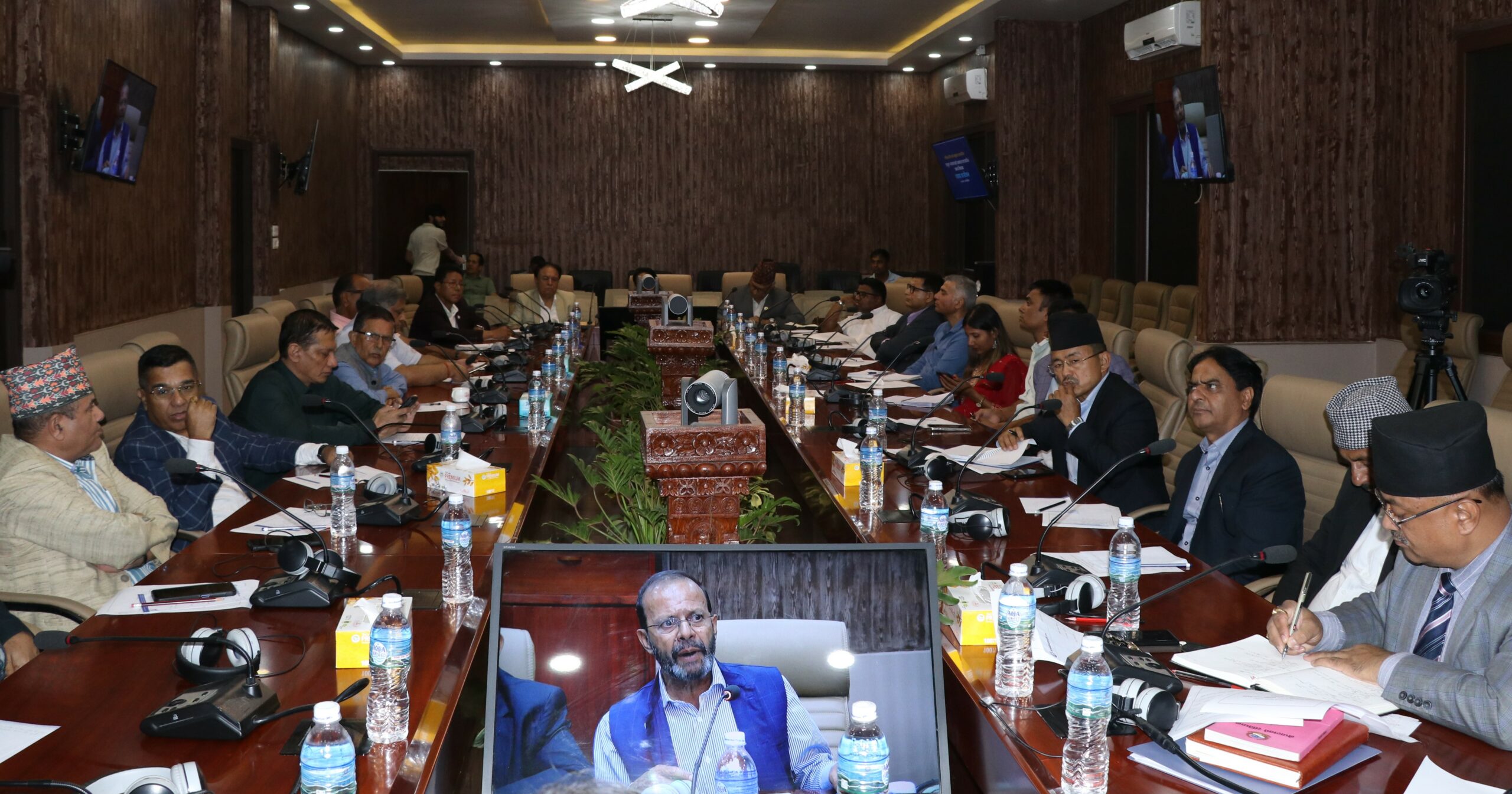
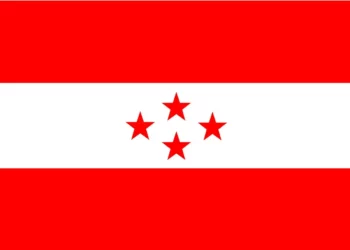

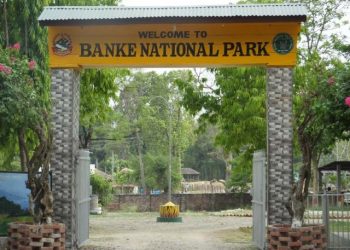
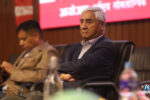


Comment